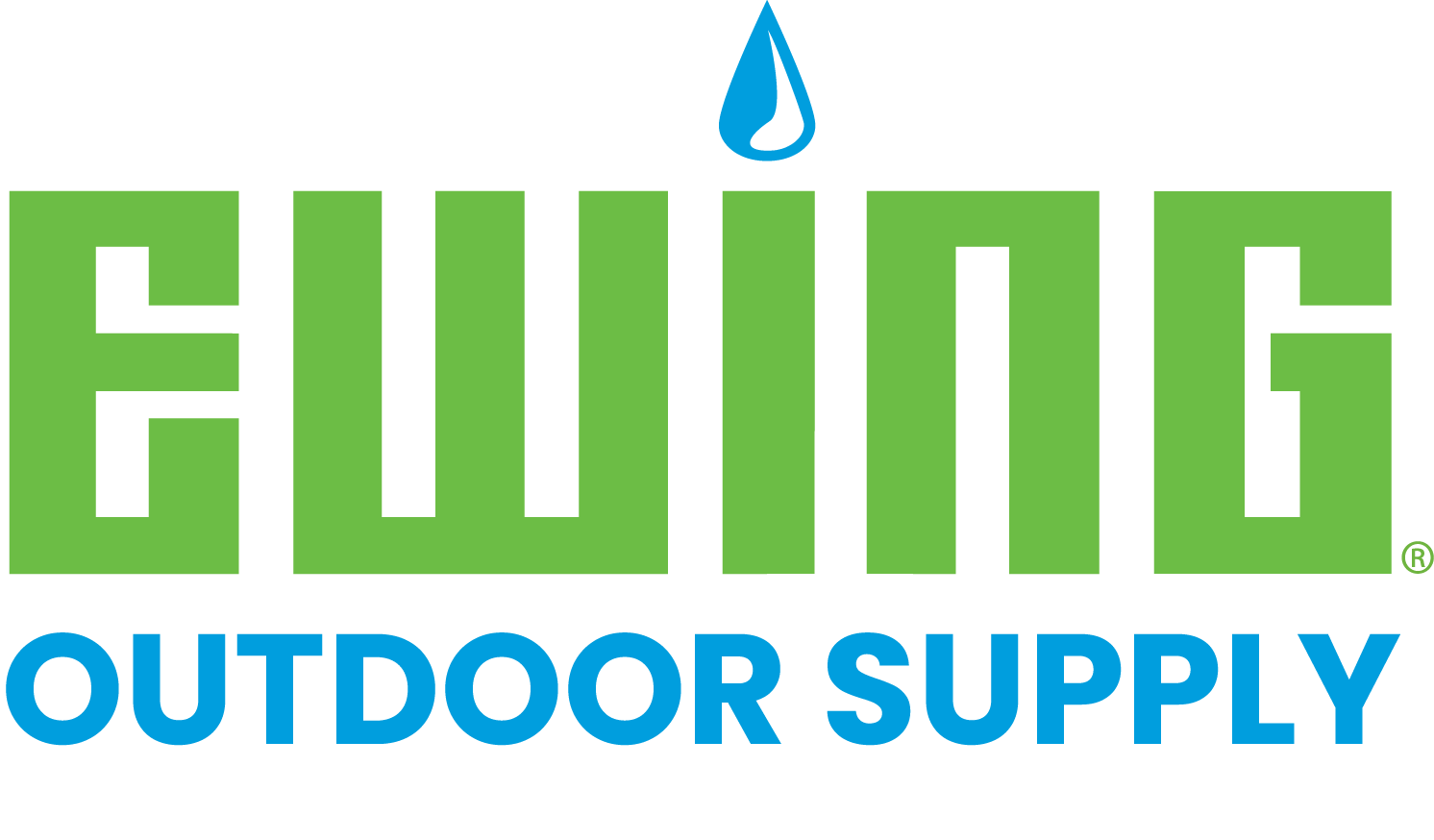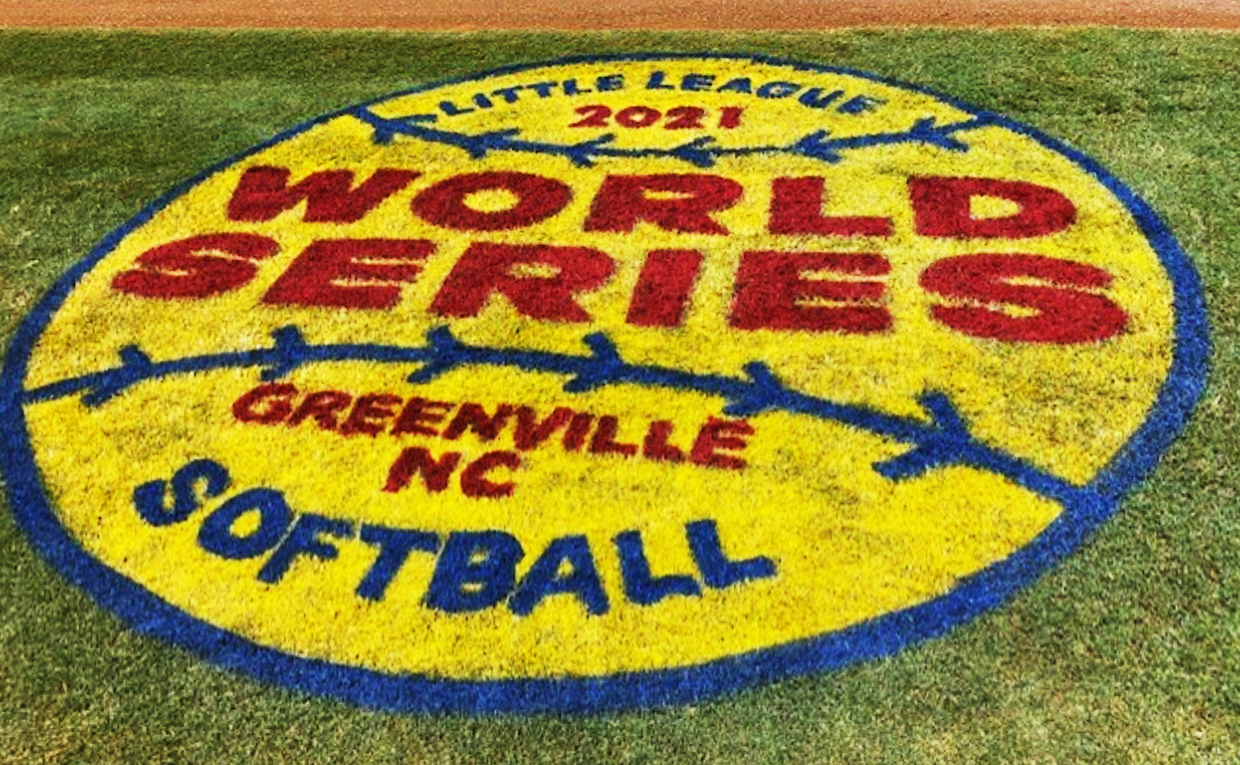This year, the Little League Softball World Series (LLSBWS) was held August 8 through 18 in Greenville, NC, and I was honored to be an integral part of the operation for an incredible Series. The event was relocated to Greenville, NC, for 2020 through 2025, but was cancelled due to COVID-19 in 2020.
While I have done numerous events, they would typically last 3-4 days at the longest. This was my first attempt at an event like this: the Series spanned eight days of tournament games! It consisted of four games each day along with six days of pre-tournament prep in which we had to load in extra lights, a national television broadcasting crew and convert a baseball field into a softball field.
To say the least, it really gave me a chance to put all of my experience as a stadium operator and a field manager to use. With a good plan and an amazing group of volunteers, vendors and tremendous support from the sports field community, we pulled off a great tournament. After such an incredible process, here are three highlights from the Series that can help you get sports fields ready for your own event.
Prep Is the First Step

When we got the keys to the field on July 15, we started with a heavy core aerification and topdressing to help establish a strong base on our turf.
We removed the pitcher’s mound, and our field contractor did a good job on the conversion of the infield from a baseball field into an all-skinned infield for the girls.
We also started an aggressive nutrition program to provide transition help and grow in/recover an overused playing surface along with a preventative fungicide program due to weather conditions.
Along with getting the infield skin right, we worked on edging, rebuilding the home plate area, putting together safety bases, watering our infield skin, setting up a small maintenance shop, working on the equipment, moving into a makeshift grounds shed, learning a new radar system, painting logos, getting hotel rooms, flight info, shirt sizes and meals set up for our grounds crew volunteers.
Keep in mind we were doing all of this work with strict COVID-19 protocols in place. Masks were worn in the presence of athletes on the field, limited fans in the stands and testing was done for the athletes and staff on a regular basis.
We had resources from the City of Greenville, and we rented a roller, a forklift and plate compactor locally. We were fortunate to have donation support for field maintenance equipment like utility vehicles, an infield machine, mowers, infield amendments, field and logo paint, fertilizer, some control products, irrigation supplies and field maintenance tools and accessories.
The field played well, all the athletes had a safe surface to play on and we dressed up the field enough to put out a great product for the TV broadcast.
Take On Conversion Challenges

The Series was held at Stallings Stadium at Elm Street Park (ESP), and it is a very unique situation due to the fact that the field is used by Greenville Little League (GLL) as a boys’ baseball field year round. This presented the first challenge: converting a Little League Baseball field into a softball field in a very short amount of time.
The second challenge is that the field was built originally in 1951 so the old girl has her quirks, no drainage in the field being a major factor. The 1-inch main line water source we used to irrigate the field and provide the water for the infield quick couplers ran on the same line as the bathroom and facilities for the entire stadium. Another quirk was the fact that the field is overseeded with perennial rye and has to go through a natural transition back to a hodgepodge of Bermudagrass.
The third obstacle we faced in converting a field in mid-summer in eastern North Carolina was the weather. This was thunderstorm season and boy, did it rain. We had torrential rains from several weather systems that we worked around. Even, when the weather cooperated, we had intense heat the entire tournament. Beyond that, everything went off without a hitch.
Within three weeks, we removed the infield grass, installed an all-clay infield, repaired the renovation damage and got our Bermuda healthy and happy.
Never Underestimate Your Volunteers

The outpouring of support from across the sports field community was absolutely incredible. From the phone calls I made to talk turf back in the spring, and even up to two days prior to the tournament, to the text messages I sent at random hours about random maintenance strategies, to visits I had with vendors and industry partners, not one person said no. I was not afraid to ask for help from those who could bring something to the table, and from the bottom of my heart, I’m thankful for their help because it led to the success of my little piece of the LLSBWS.
We also had tournament volunteers from all over the Southeast. Not only was it amazing to see the work and dedication the volunteers put in during their time in Greenville, but the professionalism and dedication they showed to run this little field was impressive. They worked like it was their own and wanted it to be perfect for every player.
My favorite part of the entire experience was working with all of the volunteers. It was awesome to see them network together, come up with creative ways to make things happen and share ideas that will carry on, exactly what field managers do on a daily basis. Without their support, we would have been in a totally different spot.
I grew up in Greenville, NC, and actually played Little League Baseball in GLL, so I have a lot of history at ESP. Little did I know it would foster my career in the sports field industry by getting me involved in baseball. In 1999, after Hurricane Floyd tore eastern NC apart with its flooding, I was part of a group of field managers that came in and, in a weekend, totally rejuvenated our little ballpark from the flood damage. It is a place that we have been involved with as a family for almost 50 years.
This was such a big deal for our community and the Little League Softball world, and it was truly a network of professionals that went above and beyond to make it happen. We are looking forward to an incredible Series in 2022.
Got a question about your own project or how to prepare your fields for a live sporting event? Send me an email here.




